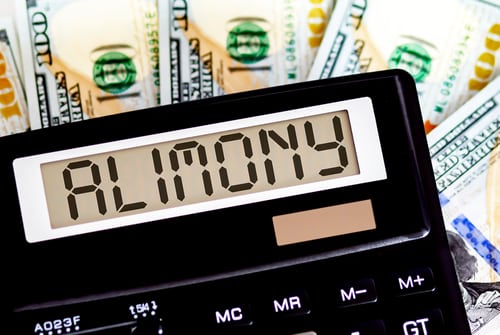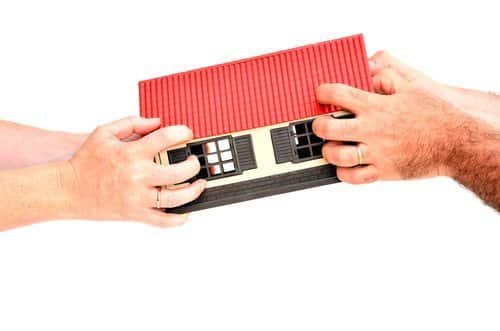As divorce lawyers in Charleston, South Carolina, we’ve handled cases where a spouse files for bankruptcy. Bankruptcy law doesn’t require a married couple to file jointly. In other words, your spouse can file without you and may leave you “holding the bag” when it comes to your marital debts and other liabilities. This article explains the impact bankruptcy may have on claims for alimony, equitable distribution of marital property, and how to protect yourself if your spouse has or will file for bankruptcy.
What Happens to a South Carolina Divorce When a Spouse Files for Bankruptcy?
When someone files for bankruptcy, an “automatic stay” becomes effective and a bankruptcy estate is also created. The estate includes all property of the person filing for bankruptcy (the debtor). The automatic stay means that all non-criminal legal claims or lawsuits are automatically stayed from moving forward. The family court must wait until the bankruptcy proceedings have concluded or the automatic stay has been properly lifted before it can divide marital property. However, this automatic stay doesn’t include legal proceedings for:
- Establishing paternity;
- Establishing or modifying an order for a domestic support obligation (alimony & child support);
- Establishing child custody or visitation;
- Actions for divorce (except to the extent that there is a claim to divide property & debts);
- Actions regarding domestic violence; and
- Actions to collect a domestic support obligation (alimony & child support) from property that isn’t part of the bankruptcy estate.
What Happens to Child Support or Alimony in Bankruptcy?
In a word – nothing. Unlike other debts, domestic support obligations such as alimony or child support aren’t discharged in bankruptcy court. Stated another way, a spouse or parent can’t avoid alimony or child support payments by filing for bankruptcy.
What Happens to Marital Debt in Bankruptcy?
Unlike child support or alimony, the bankruptcy court can discharge or restructure the payment of marital debts depending on whether your spouse seeks a Chapter 7 bankruptcy or a Chapter 13 bankruptcy. Under Chapter 7, the bankruptcy court relieves a person of all of their debts. Under Chapter 13, the bankruptcy court creates a repayment plan to allow the debtor to make payments over time so that the debtor may keep certain assets and then have the remaining debts discharged.
Under Chapter 7, property settlements between spouses aren’t dischargeable but MAY BE dischargeable under Chapter 13. In other words, a spouse or ex-spouse who files for Chapter 13 bankruptcy could be released from their obligation to pay debt distributed to them by the family court. Also, the spouse or ex-spouse can potentially avoid making payments to the other spouse if those payments were ordered as part of a property settlement in family court. Finally, the spouse who didn’t file bankruptcy may become liable for debts that were distributed to the other spouse in the divorce. That’s because the lender wasn’t a party to the divorce and so it isn’t bound by any family court order distributing debts.
How Do I Protect Myself if My Spouse Files or May File for Bankruptcy?
The answer to these questions depends on your true financial situation and whether your spouse files before or after the divorce:
- Legitimate Claims for Bankruptcy During Divorce – If you and your spouse are truly in financial hot water, then it may be best to put your marital differences aside and consider filing jointly for bankruptcy. Although filing jointly may be a bitter pill to swallow, discharging debts before the divorce is final can simplify the division and distribution of the marital property and debts. It can also avoid possible future liability of having debts assigned to you if your ex-spouse declares bankruptcy after your divorce is final.
- Questionable Claims for Bankruptcy During or After Divorce – Sometimes, either before or after a divorce, a spouse files bankruptcy just to “poor mouth” or to avoid financial obligations that he or she can otherwise afford. In that situation, it may be best to let bankruptcy court do its job to uncover whether your spouse is entitled to bankruptcy. Convincing a bankruptcy court that you are entitled to declare bankruptcy isn’t an easy task, and the bankruptcy court routinely dismisses cases that don’t qualify under federal law.
- Settlement Agreements & Possible Bankruptcy – If you suspect that your spouse may file for bankruptcy after your divorce, then there are some important things to consider if you’re trying to reach an agreement. For example, a spouse may negotiate to receive ongoing payments as part of a property settlement (which isn’t taxable as income) in lieu of receiving alimony (which is taxable as income). If your ex-spouse files for Chapter 13, they may avoid these property settlement payments. Thus, it would be best to have those payments made as spousal support (alimony) instead which can’t be discharged in bankruptcy.
Divorce Lawyers in Charleston, South Carolina
Bankruptcy can have some serious and complicated effects on your divorce. The divorce lawyers at Futeral & Nelson LLC can help you understand these consequences and work toward a resolution that safeguards your financial situation. So please contact us and schedule a consultation.












